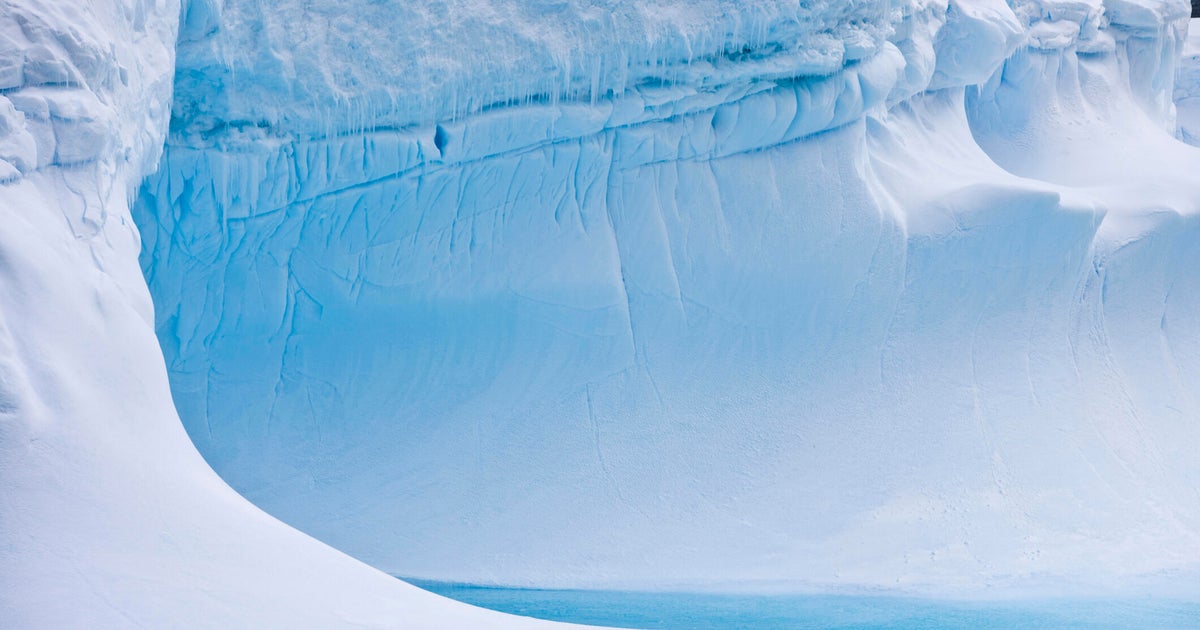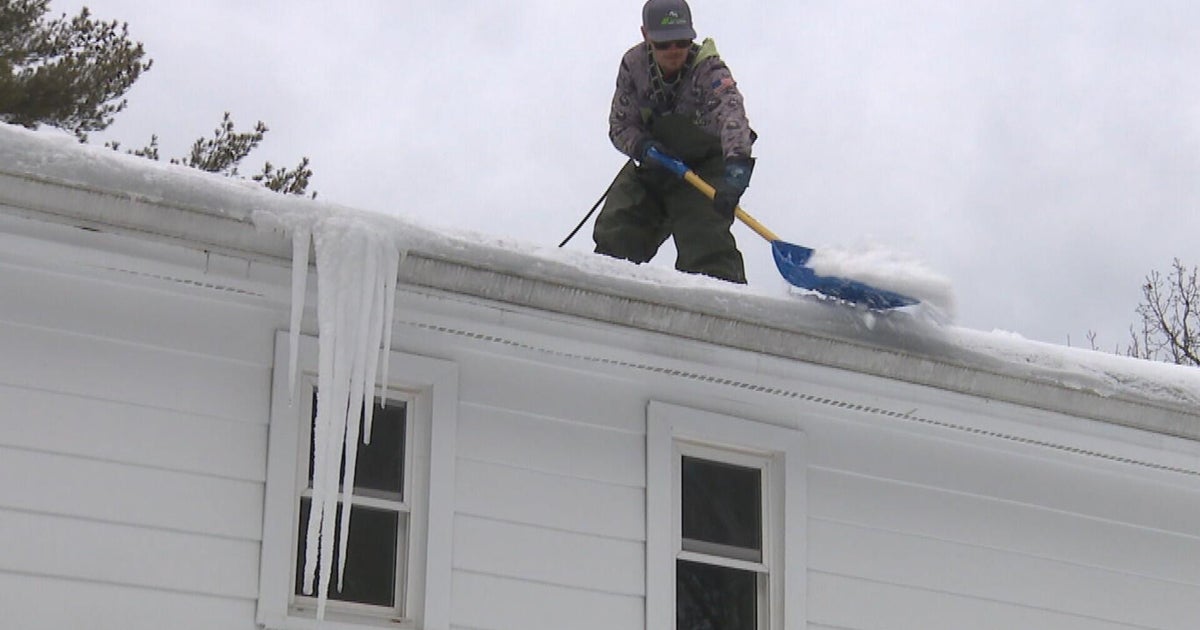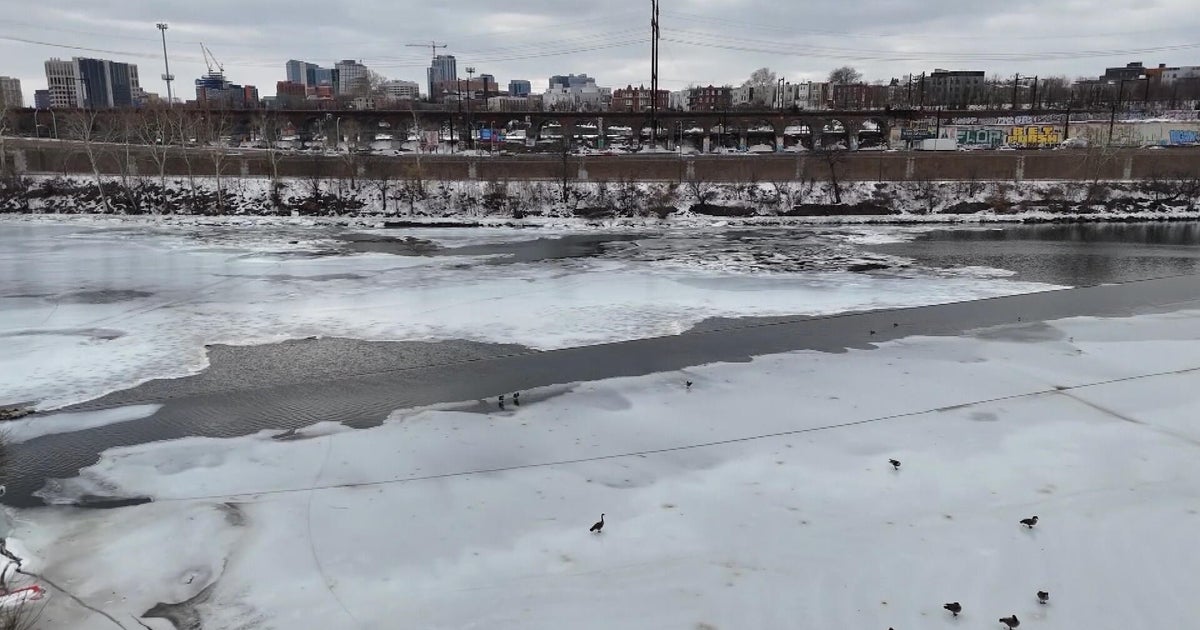Antarctica's ice is melting faster, raising risk of sea level rise
In the "the longest-ever assessment" of Antarctica's ice mass, scientists are reporting a rapid increase in melting — a six-fold increase in yearly Antarctic ice mass loss between 1979 and 2017.
The study, published Monday in the Proceedings of the National Academy of Sciences, was a collaborative effort by glaciologists from the University of California, Irvine, NASA's Jet Propulsion Laboratory and the Netherlands' Utrecht University.
"We are on a path for rapid sea level rise in the coming one century or so" says lead author Eric Rignot.
The team was able to discern that between 1979 and 1990, Antarctica shed an average of 40 billion tons of ice mass annually. From 2009 to 2017, about 252 billion tons per year were lost. And the rate of ice melt has increased as well, by nearly three times.
The data was derived from high-resolution aerial photographs taken by NASA's Operation IceBridge, satellite radar interferometry from multiple space agencies and the ongoing Landsat satellite imagery series.
Rignot warned, "Depending on how old you are and how fast we keep warming up the planet you may see the vector of catastrophically rapid sea level rise (4 meters per century scale)." A rise of 4 meters (about 12 feet) would be enough to put many coastal towns and cities underwater and submerge much of South Florida.
For now, the ice melt and corresponding sea-level rise remains at a manageable level. In the past 40 years, Antarctica's contribution to global sea level rise has only been a half an inch. But that pace is increasing as the climate warms faster.
Traditionally the western side of Antarctica has been the biggest source of anxiety among scientists. But this study finds a vast quarter of eastern Antarctica is now becoming a bigger player and "is a great concern as well."
"This region is probably more sensitive to climate change than has traditionally been assumed, and that's important to know, because it holds even more ice than West Antarctica and the Antarctic Peninsula together," said Rignot.
The more rapid melt is due to increased westerly winds forcing more warm, salty subsurface waters underneath the edges of the floating ice shelves due to a changing climate. The ice shelves act as an ocean-facing, protective barrier, keeping land-ice locked in place.
In the short term, the warmer water simply results in more melt, more icebergs and modest sea level rise. But over the longer term, the process can destabilize this protective barrier of ice. Like a cork being pulled out of a wine bottle, scientists are concerned this will lead to a cascade of land-ice pouring into the ocean, resulting in rapid sea level rise.
This type of breakneck sea level rise has happened before. The most recent time was at the end of the last Ice Age when natural climate changes progressed quickly.
"Fourteen-thousand years ago sea level rose more than a foot a decade, for four centuries. It surprises most people to learn that 20,000 years ago, sea level was 400 feet lower than today," explains John Englander, an expert on sea level rise and author of the book "High Tide On Main Street."
Now human activity is acting as a force of nature, propelling what has been a very stable sea level during all of modern human civilization back into overdrive.
"The problem is that the melting ice and rising sea tends to follow an exponential path," said Englander. "That would change or even submerge many coastal cities. The effect would also go through marshlands and far up tidal rivers."
CBS News asked Rignot how quickly we might start to see "destabilization in Antarctica such that a disruptive, rapid sea level rise occurs." He responded, "Probably not in the next 20-30 years but beyond that the risk increases very rapidly."
The actual amount and pace of future sea level rise depends on how warm it becomes, Englander noted. "That will largely be determined by the carbon dioxide level, resulting from energy production choices, transportation and more, which are still mired in debate and controversy."
Even though scientists cannot precisely predict when ice sheet collapse might occur, Englander urges, "The smart path is to realize that it can occur and to design to reduce risk as much as possible."




